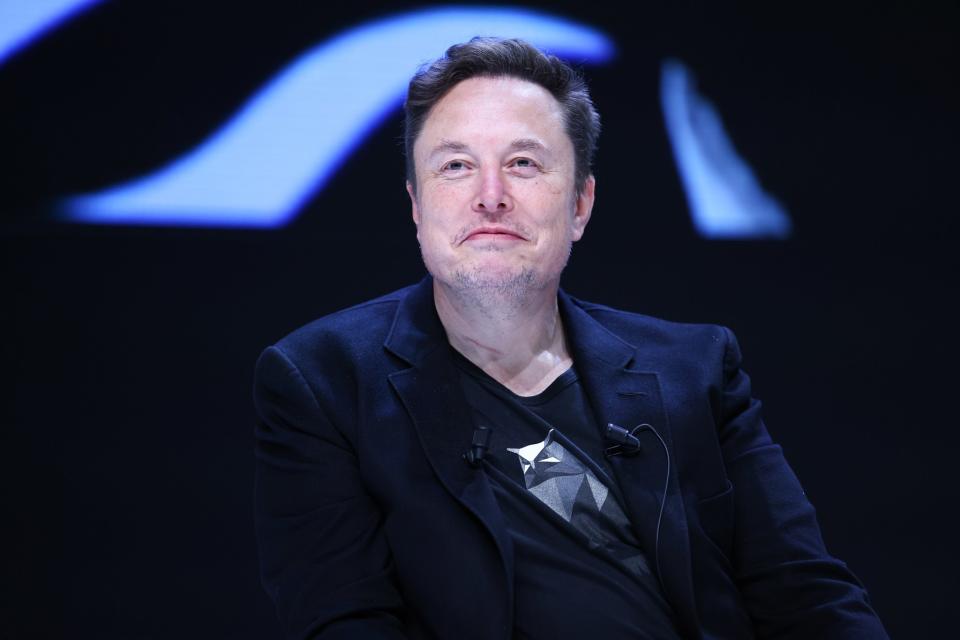Tesla stock is firmly back in the Magnificent Seven—even as its EV market share slides

Tesla’s competition is fiercer than ever. That has done little, however, to quell a massive rally in the company's stock price that has erased year-to-date losses and quieted for now questions of whether it still deserves to be part of the Magnificent Seven—a movie-inspired term that describes the tech giants (Alphabet, Amazon, Apple, Meta, Microsoft and Nvidia are the others) that account for the lion's share of the stock market's gains in recent years.
When Tesla shares dipped as low as $138.80 in April, however, Tesla barely clung to its place on the list of America's top 10 largest companies. Pundits like CNBC's Jim Cramer had already declared that the company had vacated its seat among some of the country's most powerful and fastest-growing companies.
Boosted by Q2 deliveries that exceeded low expectations, however, Tesla’s massive rally continued Wednesday as shares traded at their highest level since September, closing the day at $263.26. Tesla’s market capitalization is now approaching $850 billion. That makes Tesla the eighth-largest U.S. company, though it still sits well-behind the $1.3 trillion market cap of Meta, the next-smallest member of the Magnificent Seven.
As Fortune’s Christiaan Hetzner noted earlier this week, Tesla bulls may see the firm as an artificial intelligence company, but it still needs to prove it can sell cars for now—a proposition that might be in doubt given a New York Times report, citing Cox Automotive, that Tesla no longer controls a majority of the American EV market.
Seth Goldstein, an equities strategist at Morningstar, told Fortune that he never believed focusing on Tesla’s EV market share was a good idea. As overall demand for electric vehicles climbs, he noted, Tesla’s market share should fall even if the company continues to grow.
“I think the more important number is, what are their deliveries and what's their percent of the total auto market, including internal combustion engines?” Goldstein said.
Tesla's deliveries beat expectations
At the beginning of the month, Tesla announced it had delivered almost 444,000 vehicles in Q2, just under a 5% drop from last year. As Hetzner noted last week, analysts had estimated that drop would be around 9%.
That number impressed Goldstein as did the record numbers from Tesla’s energy storage business. The company said it deployed 9.4 gigawatt hours of battery energy storage, its highest quarterly number yet and more than double the amount reported in Q1. Even small changes in expectations for high-growth stocks, Goldstein said, can heavily impact share prices.
“That shows that Tesla can still grow,” Goldstein said. "It shows that maybe the worst is behind Tesla, and that they are turning things around.”
Awaiting news on robo-taxis and affordable vehicles
Investors may also be looking forward to Aug. 8, when Tesla is scheduled to reveal its Cybercab, the robo-taxi model expected to lack a steering wheel and pedals. Goldstein is curious if the unveiling features a concrete timeline or instead offers few details.
In the more immediate future, Goldstein wants to hear more about Tesla’s progress on producing a new, more affordable vehicle when the company hosts its next earnings call on July 23. Musk has said production could start as soon as 2025, which Goldstein said would enable deliveries to start growing again by 2026.
He thinks the market will react positively if that timeline remains intact.
“If they don't commit to it again or give us any updates,” he said, “we could see the stock falter.”
This story was originally featured on Fortune.com

 Yahoo Finance
Yahoo Finance 